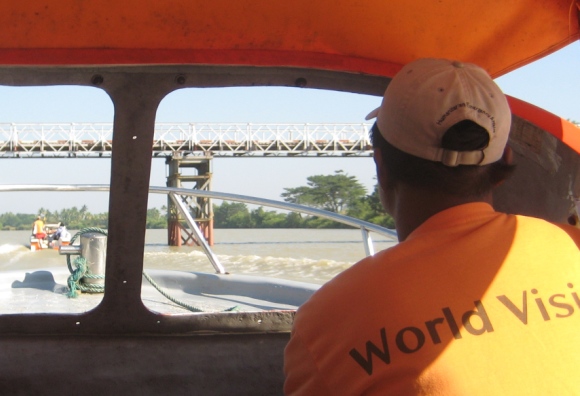
Some aid gets to the people of the delta area of Myanmar. For every $50 in international aid, both government and non government, to Cambodia, Laos and Vietnam, Myanmar gets $2.50. I was told this by a “Burma expert” and later had to check it out with original UN sources for a magazine article. It’s really true.
This lack of aid is only partially due to the government restrictions on NGO’s operating in Myanmar. The other, and I think major, reason is due to the sanctions on Myanmar by the US, EU and Australia. Most NGO’s are from these countries, and sanctions discourage them. We (Nargis Library Recovery) had to get a special permit from the US Treasury department to do what we do in Myanmar. You don’t need that for other places.
In order to stay in Myanmar and do anything at all, NGO’s normally do not publicly complain about issues with the government. Sometimes a fuss is kicked up. You have to pick your battles. If you want to help political prisoners, monitor their elections for fairness or get government officials to do things differently that is one thing. If you want to help people in non political areas such as food and agriculture or education and libraries that is more straightforward.
By staying away from sensitive issues NGO’s can operate pretty free from government interference. The government does not bother with us. I think most of the money it gets from us is our 10% hotel tax and some airport fees when we visit. It does ask that we do not bring in books about Myanmar governmental issues, with explicit sexual content and religious books specifically aimed at proselytizing. It does not check our books, it expects us to do that.
Given all that, there are some NGO’s doing significant work in Myanmar. One of the best is World Vision. They have 850 workers in Myanmar, with 63 staff in the Bogalay delta area. Among other things they operate some non formal education schools out in the delta villages. Recently they have started helping us distribute our books among 50 libraries they either support or work with.
The Bogalay area director, Naw Maureen Kolay accompanied us in two of their boats to visit schools in two delta villages. These boats had the only two outboard motors I have ever seen in Myanmar. For small boats in Myanmar they were very fast, although most of the runabouts on US lakes would leave them behind.

We could not see the landing for Auk Magyi until we were nearly on top of it, and climbing up to it was a bit of an adventure for some of us. The children and some staff members led us along a short trail to the school.


It is great that WV is setting up these schools for children who cannot go on a normal schedule because of their work load with their family. It is a great example of how help often must be given in Myanmar: you do what you can. It is not ideal and it could be much better if circumstances would allow. The kids come when they can. Often education is disrupted as the family moves to find work. There were only a few books here, some of them from us. They need both more Burmese and some English children’s books here and at the other WV schools.

Way more should and could be done to help. In the meantime, NGO’s like World Vision, Nargis Library Recovery and about thirty others operating in the delta area will do what they can. While it may not be much, there is little enough going on there that it still makes a big impact.



